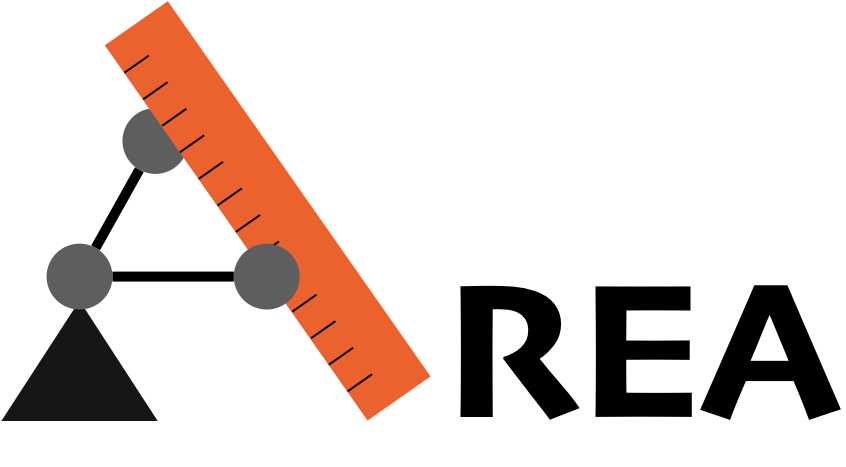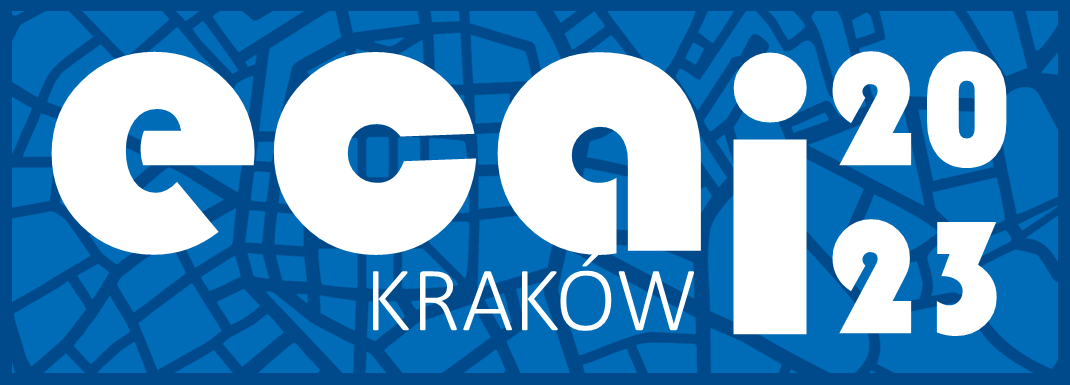Third Workshop on Agents and Robots for reliable Engineered Autonomy
Proceedings
The AREA 2023 proceedings are available at https://cgi.cse.unsw.edu.au/~eptcs/content.cgi?AREA2023
Workshop Programme
Time in CEST timezone.
Long papers: 25 min (20 min + 5 min Q&A)
Short papers: 15 min (12 min + 3 min Q&A)
![]() = short papers
= short papers
![]() = long papers
= long papers
| 09:00 | Welcome | |||
|---|---|---|---|---|
| 09:05 | Invited talk: Viviana Mascardi, Associate Professor, University of Genoa Title: Talking agents in the virtual world Abstract: What do chatbots and the metaverse have to do with reliability, cognitive agents, and robotic applications? ... | |||
| 09:50 | Session 1: Robotics Déborah Conforto Nedelmann, Jerôme Lacan and Caroline Chanel Athanasios Lentzas and Dimitris Vrakas | |||
| 10:30 | Coffee Break | |||
| 11:00 | Session 2: Verification Jan Vermaelen and Tom Holvoet Davide Catta, Vadim Malvone and Aniello Murano Robert Abela, Christian Colombo, Axel Curmi, Mattea Fenech, Mark Vella and Angelo Ferrando Vadim Malvone | |||
| 12:30 | Lunch | |||
| 13:30 | Invited Talk: Bruno Lacerda, Senior Researcher in Robotics, University of Oxford Title: Model-Based Reasoning under Uncertainty for Reliable Robot Mission Planning Abstract: In this presentation, I will argue that the synergy between three factors is critical for creating reliable mission planning algorithms for autonomous robots operating in uncontrolled environments. These factors are ... | |||
| 14:15 | Session 3: Robotics Sven Signer and Ian Gray Christopher Anderson and Louise Dennis | |||
| 15:00 | Coffee Break | |||
| 15:30 | Session 4: Planning Guy Shani and Oded Blumnethal Aya Kherrour, Marco Robol, Marco Roveri and Paolo Giorgini Roland Godet, Charles Lesire and Arthur Bit-Monnot Caroline Bonhomme and Jean-Louis Dufour | |||
| 17:00 | Closing remarks | |||
Aim
Autonomous agents is a well-established area that has been researched for decades, both from a design and implementation viewpoint. Nonetheless, the application of agents in real-world scenarios has largely been adopted in applications which are primarily software based, and remains limited in applications which involve physical interaction. In parallel, robots are no longer used only in tightly constrained industrial applications but are instead being applied in an increasing number of domains, ranging from robotic assistants to search and rescue, where the working environment is both dynamic and underspecified, and may involve interactions between multiple robots and humans.
This presents significant challenges to traditional software engineering methodologies. Increased autonomy is an important route to enabling robotic applications to function in these environments, and autonomous agents and multi-agent systems are a promising approach to their engineering. As autonomy and interaction increases, the engineering of reliable behaviour becomes more challenging (both in robotic applications and in more traditional autonomous agent settings), and so there is a need for research into new approaches to verification and validation that can be integrated in the engineering lifecycle of these systems.
This workshop aims to bring together researchers from the autonomous agents and the robotics communities, since combining knowledge from these two research areas may lead to innovative approaches that solve complex problems related to the verification and validation of autonomous robotic systems. Therefore, we encourage submissions that combine agents, robots, software engineering, and verification, but we also welcome papers focused on one of these areas, as long as their applicability to the other areas is explicit.
List of Topics
- Agent-based modular architectures applicable to robots
- Agent oriented software engineering to model high-level control in robotic development
- Agent programming languages and tools for developing robotic or intelligent autonomous systems
- Coordination, interaction, and negotiation protocols for agents and robots
- Distributed problem solving and automated planning in autonomous systems
- Engineering reliable interactions between humans and autonomous robots or agents
- Fault tolerance, health-management, and long-term autonomy
- Neuro-symbolic artificial intelligence
- Real world applications of autonomous agents and multi-agent systems in robotics
- Runtime verification of autonomous agents and robotic systems
- Task and resource allocation in multi-robot systems
- Verification and validation of autonomous systems
Workshop Format
This event is planned as a one day workshop, with a duration of approximately eight hours (four in the morning and four in the afternoon). Depending on the number of submissions, we may organise a discussion panel at the end. We plan to have at least two invited talks.
Submission Instructions
Participants are invited to submit either:
- a full length research paper — a paper describing technically sound, innovative ideas that can advance the engineering/reliability of agents and robots; an application/case study paper, with emphasis on robotic applications where agents techniques have been applied; a survey paper on one of the topics of interest.
- a short paper — a position paper describing relevant questions and issues that participants feel should be addressed; a demo paper describing a demonstration of an agent/robotic application, system or tool; a new idea in the field which is not ready for publication as a regular paper but would benefit from discussion.
Full-length research papers must not exceed twelve (12) pages single column excluding references and appendices and short papers must not exceed six (6) pages single column excluding references and appendices. All submissions must be in English and PDF format. Each submission will receive at least three single-blind reviews. All papers should be original and not be submitted elsewhere. The review process is single-blind: submissions should not be blind, reviewers will be.
The AREA workshop is going to be an in-person event (following ECAI 2023 guidelines). At least one author of each accepted paper has to register to the workshop (via ECAI 2023 website, https://ecai2023.eu/registrations).
The proceedings of the workshop will be published with EPTCS (http://www.eptcs.org/). Formatting guidelines should follow EPTCS style: http://style.eptcs.org/
Submission link: https://easychair.org/my/conference?conf=area2023
Important Dates (updated)
- Paper Submission Deadline (Final Extension): 30th July 2023 (AoE, UTC-12)
- Paper Notification: 14th August 2023 (AoE, UTC-12)
- Camera Ready: 3rd September 2023 (AoE, UTC-12)
- Workshop: 1st October 2023
Registration
Please register at https://ecai2023.eu/registrations, and make sure that you select and add AREA as one of the workshops you are going to participate.
Invited Speakers
- Viviana Mascardi, Genoa University (Italy)
- Bruno Lacerda, University of Oxford (United Kingdom)
Organisers
- Angelo Ferrando, University of Genova (Italy)
- Rafael C. Cardoso, University of Aberdeen (UK)
Program Committee
- Tobias Ahlbrecht, Clausthal University of Technology (Germany)
- Gleifer Vaz Alves, Federal University of Technology – Paraná (Brazil)
- Mehrnoosh Askarpour, McMaster University / GM (Canada)
- Francesco Belardinelli, Imperial College London (UK)
- Amel Bennaceur, The Open University (UK)
- Daniela Briola, University of Milano Bicocca (Italy)
- Louise A. Dennis, The University of Manchester (UK)
- Babak Esfandiari, Carleton University (Canada)
- Marie Farrell, The University of Manchester (UK)
- Enrico Ghiorzi, Istituto Italiano di Tecnologia - IIT (Italy)
- Jomi F. Hübner, UFSC (Brazil)
- Erez Karpas, Technion – Israel Institute of Technology (Israel)
- Rafał Kucharski, Jagiellonian University (Poland)
- Charles Lesire, ONERA (French Aerospace Lab) (France)
- Livia Lestingi, Politecnico di Milano (Italy)
- Matt Luckcuck, University of Derby (UK)
- Vadim Malvone, Telecom Paris (France)
- Stefania Monica, Università degli studi di Modena e Reggio Emilia (Italy)
- Chunyan Mu, University of Aberdeen (UK)
- Viviana Mascardi, Genoa University (Italy)
- Eva Onaindia, Polytechnic University of Valencia (Spain)
- Fabio Papacchini, Lancaster University Leipzig (Germany)
- Mohammad Mehdi Pourhashem, University of Science and Technology of Mazandaran (Iran)
- Pedro Ribeiro, University of York (UK)
- Christos Tsigkanos, University of Bern (Switzerland)
Contact Information
For more information contact us at area.workshop.info@gmail.com

